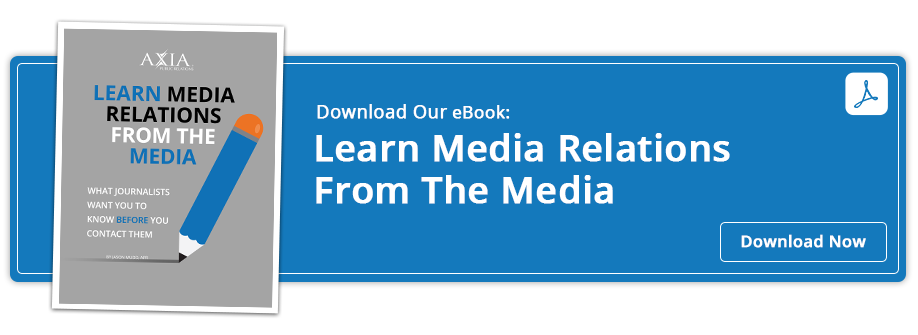 Use PR to help you avoid common writing mistakes and get media attention
Use PR to help you avoid common writing mistakes and get media attention
What do you think when you read a resume rife with errors? It’s probably unlikely that the candidate will be offered the position. If it’s really bad, you may even stop reading it altogether, regardless of the listed experience.
That’s the same feeling journalists experience when they receive poorly written documents from you.
It makes you (and your company) seem unprofessional and sloppy, creating a horrible first impression and damaging your reputation, perhaps permanently. Follow these PR recommendations to prevent it from happening to your company.
Problem 1: Ineffective writing
Some culprits include:
-
Too much fluff
-
Not enough details
-
Too technical
-
Taking too long to get to the point
-
Writing that goes on and on and on (and on)
The solution: Forget much of what you learned in college about writing, where length is often given more weight than clarity. Remember to keep sentences simple by just stating who is performing what action and who will benefit. For example, “Company X’s CEO will speak at a children’s charity event.” You can explain more in future sentences, but even those should still follow the same format.
Problem 2: Buzzwords that PR loves but journalists hate
We use them to be descriptive and make our news sound more exciting, but they actually have the opposite effect. A short list:
-
Revolutionary
-
Groundbreaking
-
State-of-the-art (What does that really even mean, anyway?)
-
Cutting or leading edge
-
Breakthrough
The solution: Just get rid of them – they’re not impressive and don’t add anything to what you’re trying to convey. When describing something that is new or has never been seen before, say that. If you’re highlighting a concept or event that will incite changes in your industry, journalists will be more interested if you tell them how that will happen.
Problem 3: The dangers of spell-check
Many people put way too much trust in the spell-check feature. While it’s great for catching those pesky keystroke errors, commonly misspelled words like “receive” and warning you about run-on sentences, spell-check is not perfect. For example, it doesn’t alert you if you’ve typed “form” instead of “from” or “no” in place of “now,” as it’s all actually spelled correctly.
The solution: Be the boss of your own writing. These tips can help:
-
After you write anything, read it aloud.
-
Double-check the spelling of any and every name, even if it’s one you’ve written numerous times.
-
Have a colleague proof it for you.
-
Don’t rush; give yourself ample time for writing tasks, especially if it’s not something you do every day.
-
Walk away from your document, do something else, then come back and reread it later (if you don’t have time for this step, see previous tip).
Problem 4: Trying to handle it all yourself
Today, everyone is expected to multitask and use technology to get more done in less time. This is a formula for disaster when it comes to communicating with journalists.
The solution: Let the right PR firm manage it for you. At Axia, we will craft concise, well-written pitches and press releases to maximize your positive media coverage and help you increase name recognition – in a good way. Download our e-book Learn Media Relations from the Media or contact us today to find out more about how we can work to improve your relationships with journalists and ultimately increase your profitability.
Lisa Goldsberry is a writer for Axia Public Relations with more than 15 years of public relations experience. She specializes in business, higher education and technology PR. Connect with Axia Public Relations on Twitter at @axiapr.
Topics: media relations, public relations



Comment on This Article